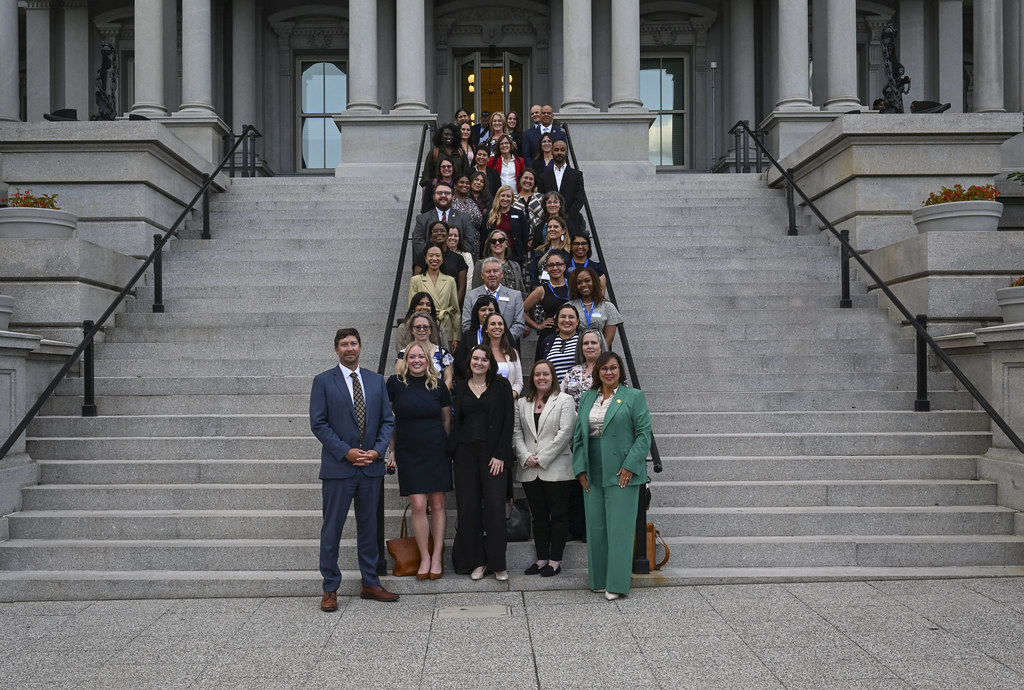Inaugural Rural Child Care Forum Highlights the Administration’s Commitment to Serving Rural Communities

Earlier this month the U.S. Department of Agriculture – Rural Development (USDA RD) and the U.S Department of Health and Human Services – Administration for Child and Families (ACF) partnered to host the inaugural Rural Child Care Forum. State and local leaders, providers, advocates, funders, and national partners gathered to hear about the Biden-Harris administration’s commitment to serving rural and tribal communities, learned more about opportunities for support and collaboration in strengthening rural child care, and shared their own successes and struggles.
Rural families experience acute challenges accessing child care and have unique needs. Quality programs can be hard to come by due to factors like low population density, and limited transportation options. Rural communities are more likely to rely on informal care and home-based family child care (FCC) providers, as facilities for larger centers may be less practical or convenient. Depending on the local industry, parents in many rural communities are more likely to need care during nontraditional hours. Residents also have to drive further distances to access the services that are available. These same challenges also make it difficult to recruit and retain child care workers.
Child care is infrastructure. Because access directly affects parents’ ability to work and achieve economic stability, and children benefit from quality early learning opportunities, improving child care access is directly tied to economic success. Both USDA RD and ACF are engaged in numerous efforts to strengthen child care access in rural communities. The newly updated Joint Resource Guide to Strengthen and Expand Child Care Facilities in Rural Communities outlines many of the opportunities discussed at the forum and explains how communities can access them.
The Biden administration has been committed to helping rural child care providers access capital to increase supply. Leaders of two Community Development Financial Institutions (CDFIs) discussed their work with rural child care providers. CDFIs are financial intermediaries that specialize in providing financial services to people and places that lack access to capital. They meet the unique needs of businesses they work with, offering both financing and technical assistance. Technical assistance can range from connecting providers with contractors, to facilitating the co-location of affordable housing and child care, to mapping out where seats are needed in a community. While CDFIs can play an important role in supporting rural child care programs, participants at the forum also discussed how even with support, loans remain out of reach for some rural communities, who stand to benefit more from grants.
Multiple presenters also discussed how the challenges of rural child care can be exacerbated for tribal communities, which face pockets of deep poverty, high unemployment rates, and limited child care options. Barb Fabre, CEO of All Nations Rise, discussed how tribal communities can leverage federal dollars. She also discussed the importance of treating child care as early education and shared her experiences preparing children for kindergarten in White Earth Nation. The Bipartisan Policy Center’s documentary Righting a Wrong: Closing the Gap in Child Care for Native American Families showcased the broad impact one early learning center has had on the Flathead Reservation community. The benefits of engaging communities in finding the unique solutions that meet their needs was a theme throughout the day.
The importance of the The Child and Adult Care Food Program (CACFP), administered by USDA Food and Nutrition Service, was also mentioned multiple times at the forum. CACFP provides healthy meals to young children in center-based child care programs and FCC homes at a free or reduced-price. Participating providers receive a cash reimbursement for meals and snacks served, which must meet federal nutrition guidelines. Attendees stressed the vital role the program plays for rural child care providers and offered suggestions for improvements. Multiple bills have been introduced this Congress that would make long overdue changes to CACFP.
The Farm Bill, one of the most important pieces of agricultural legislation, is up for renewal at the end of the month, presenting a big opportunity to further strengthen child care access in rural communities. The bill is expected to include a version of the bipartisan Expanding Child Care in Rural America Act, making child care a priority like never before. In selecting loan and grant recipients for multiple programs already included in the Farm Bill, USDA would prioritize projects that propose to use funding to address the availability, quality, or cost of child care.
The forum concluded with remarks from child care providers and the opportunity for attendees to share their experiences, suggestions, and concerns with White House officials. FFYF commends the Administration and Congress for recent efforts to strengthen access to quality child care in rural communities.
Subscribe to FFYF First Look
Every morning, FFYF reports on the latest child care & early learning news from across the country. Subscribe and take 5 minutes to know what's happening in early childhood education.
